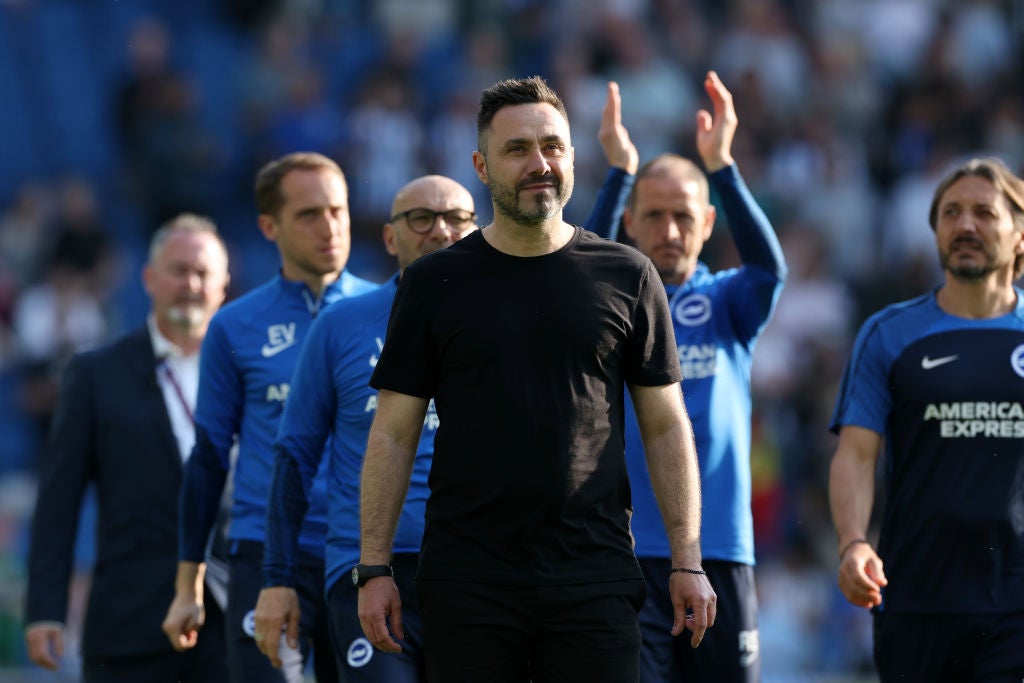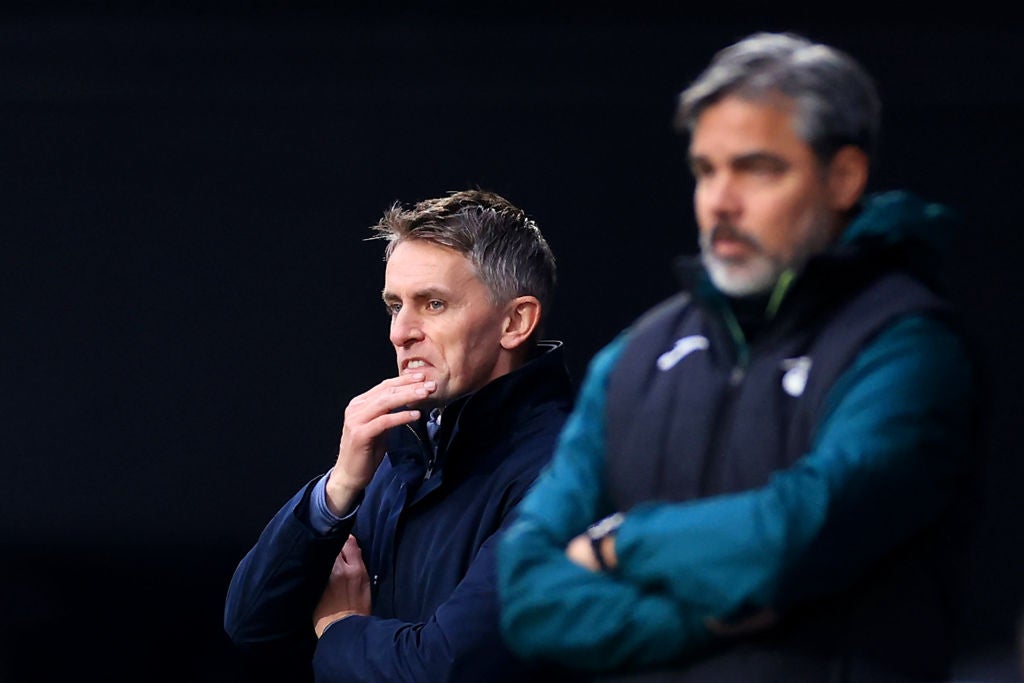The managerial summer trend and why one Kieran McKenna trait ...
Sign up to Miguel Delaney’s Reading the Game newsletter sent straight to your inbox for freeSign up to Miguel’s Delaney’s free weekly newsletter

Kieran McKenna has gone from a manager given a lot of praise to one given a lot of choices. The Ipswich Town manager has concrete interest from all of Manchester United, Chelsea and Brighton and Hove Albion. There is also the romantic option of just staying at Portman Road now he has returned Premier League football to the stadium, to mimic Xabi Alonso at Bayer Leverkusen.
Now, McKenna already has a lot to think about, before a firm offer even comes in. That’s as everyone else is doing a lot of talking about it, which has caused some agitation around Ipswich.
Perhaps the most fervent source of discussion within the game, ironically, is how a coach with relatively limited career success is in line for some of the biggest jobs. McKenna has performed sensationally to bring Ipswich back to the Premier League, but it usually takes much more than that to get Chelsea, let alone United.
Such a move would be all the more surprising given the sudden availability of genuine big names like Mauricio Pochettino and Thomas Tuchel. One of the reasons this had been a chaotic summer managerial market was because football was essentially moving out of one era of super-managers.

It is no exaggeration to say the last decade at elite level was largely dictated by the minds and personalities of Pep Guardiola, Jurgen Klopp, Antonio Conte, Carlo Ancelotti and then - maybe more on the fringes of that - Tuchel, Pochettino and Luis Enrique. A few other coaches of course had claims but these were generally the names that most came up when the big jobs came up.
Now, with Guardiola and Ancelotti potentially considering their last few years at Manchester City and Real Madrid, respectively, and Klopp taking time away, there is a growing break. It has been widened by a tactical shift, that was largely initiated by coaches such as Xabi Alonso. That was why the Basque had been the biggest name on the market. While Pochettino and Tuchel remain hugely respected, there is a sense in club hierarchies that newer coaches are doing fresher things. It is partly why the offers have dried up for Conte. Others would point to a series of blow-ups.
The latter reflects another key issue as to why coaches like McKenna are suddenly so popular. This period maybe represents the final full step away from the figurehead manager towards the complete sporting director model.

Clubs are no longer willing to tolerate coaches trying to assume more power out of some good results. The increasing message, as one club chief executive relayed in the last few weeks is “this is our model, you agreed to fit into it when you signed, don’t try to change things”. That thinking has influenced the decisions at Chelsea, Brighton and Hull City. Norwich City meanwhile removed David Wagner because of style-of-play considerations. It was precisely why Roberto De Zerbi was allowed to just leave too.
For all that this seems excessive, it is actually football hierarchies trying to be smart and disciplined. The increasing shift is almost certainly going to be towards more coaches who fit that rather than managers who seek to impose their will. Liverpool have already moved to this model with Arne Slot. United are trying to move to this model under INEOS.
There are a few ironies to all of this, mind. One is how some of these coaches, such as De Zerbi, began to get more demanding without necessarily having the full range of achievements to go with it. He did well, sure, but not to that level. The Brighton hierarchy were understood to be fed up.
Another is that McKenna did actually work in a system where Ipswich afforded him almost complete control. He is just seen as adaptable.
There was then the lesson of the biggest managerial story of the season. For all the advances Liverpool made in their wider structure, it was an old-fashioned charismatic genius in Klopp who brought it altogether and brought it all to higher levels.
Perhaps the real lesson there, however, is to only allow that once a coach has really proven he is the man.
That's what Arsenal did with Mikel Arteta. It's that there aren't many coaches with anything close to even the Basque's record at the moment. It’s why McKenna is suddenly making sense to a lot of clubs.







































































